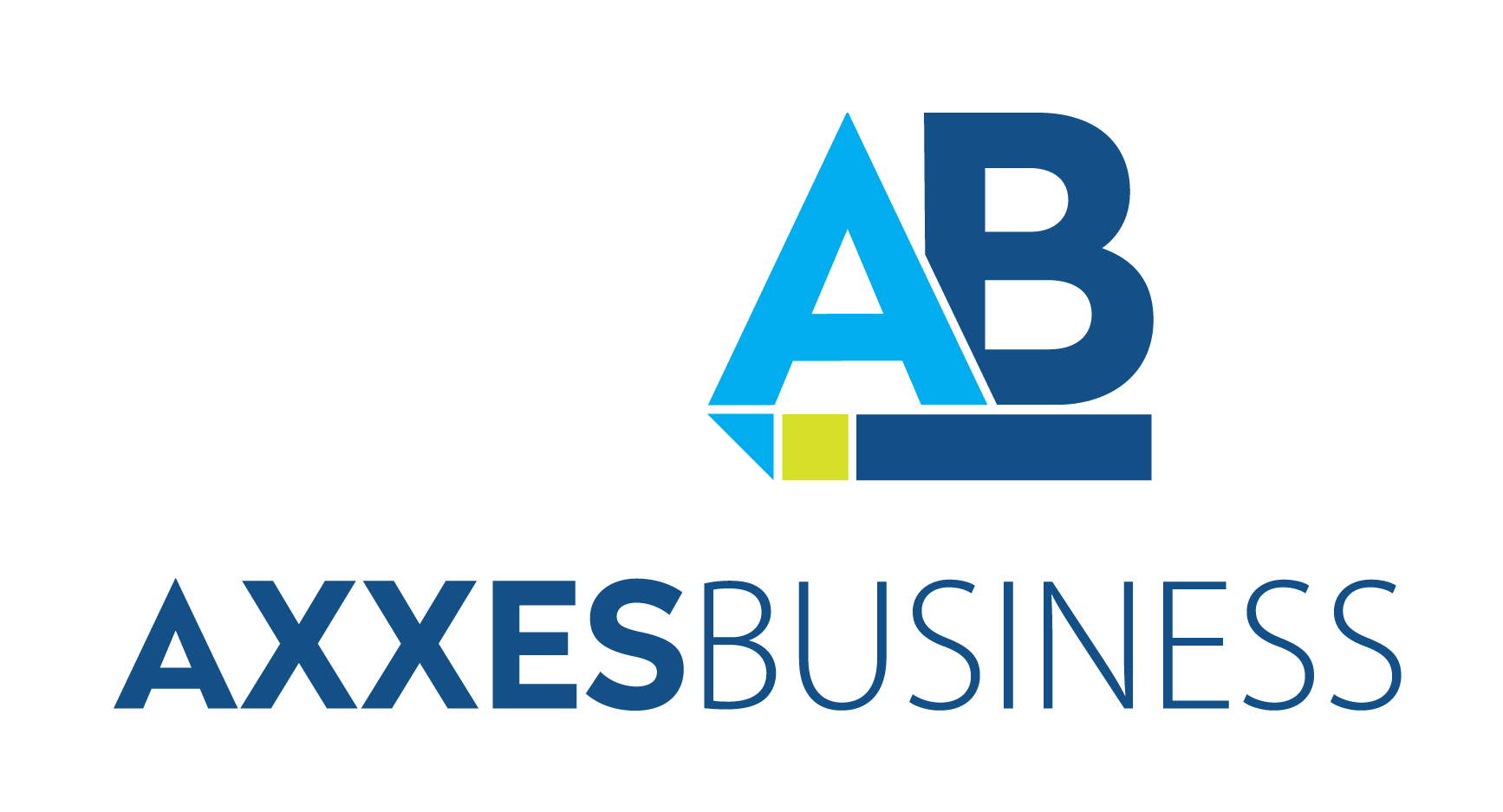News

By business
•
04 Aug, 2022
According to the Business Development Bank of Canada (BDC), a finance institution that specializes on assisting businesses, Canadians have a good attitude toward small business owners. As per a 2019 BDC survey, other Canadians perceive entrepreneurs as bold, courageous, and hardworking. And over 88 percent believed that entrepreneurs are crucial for industrial prosperity in Canada, and more than 75 percent described it as a decent way to earn money. Another 72.1 percent thought Canada was an excellent location to start a business. Are you one of the 72.4 percent that see "entrepreneurship as a desirable career choice?" If so, here's a few things to keep in mind before you begin. It's Tough. Being an entrepreneur is not for the faint of heart. While there is immense delight in watching your passion come to life and sharing it with others, it always requires a significant time, financial, and emotional investment - even if you are immediately successful. In addition to developing and marketing your product, you must have long-term (and flexible) plans for expansion, staff retention (workplace culture, benefits, etc.), reputation management (essential for social media and dealing with reviews and trolls), and ongoing compliance with the Canada Revenue Agency (CRA). In reality, as your company grows, CRA compliance changes, making access to a competent bookkeeper and accountant one of your most significant expenditures. Furthermore, whether you sell digital items, drive for Uber, or sell globally on a site like Shopify, you must be aware of whether you may collect GST/HST/QST from certain clients. Certain items and clients in certain places are excluded. The Definition is Extensive Entrepreneurs are described as those who own their own businesses, although this is a very broad definition. The MLM member is a business owner. An entrepreneur runs a home-based business. But so is the owner of a brick-and-mortar shop with 50 workers, or the Amazon seller who uses dropship. In the perspective of the CRA, it makes no difference how big or little your business is; if you are operating out of Canada and producing revenue, you must collect and return GST/HST/QST (when the minimum earnings level is met) and report on all income generated. Money Isn't the Only Metric for Success Many entrepreneurs rapidly discover that large income is not a genuine measure of success; the firm might collapse simply by growing too quickly or being sidetracked by factors beyond their control. The pandemic is an excellent illustration of this. Furthermore, as governments change, so does access to grants, financing, and support. A prosperous firm might make a lot of money one year and then must close its doors the next. As tough as it might be (since most new firms run at a loss during their first few years), maintaining an emergency cash reserve is critical, as is taking full use of any federal and provincial assistance available. Professional Assistance Is Required Going it alone means missing out on crucial methods to effectively handle the financial side of your business unless you are an expert in Canadian tax law, payroll, and financing programmes. As an accounting advisory that specialises in assisting Canadian small businesses, particularly e-commerce entrepreneurs, we understand that having your bookkeeping and accounting needs met from the start may be a game changer in your long-term success. Contact us today to see how our services might benefit your company. Rather of having a full-time accountant on staff, we can help you when and when you need it, from tax preparation to acting as your virtual CFO and setting you up with Xero and others for your online storefront.

By business
•
14 Jul, 2022
Avec l'augmentation rapide de la main-d'œuvre travaillant à domicile en raison de la pandémie, l'Agence du revenu du Canada (ARC) a apporté quelques changements à la déduction pour bureaux à domicile. Si vous travaillez à domicile, voici ce que vous devez savoir. Le nouveau taux forfaitaire temporaire pour 2020 Le taux forfaitaire temporaire n'était disponible que pour l'année fiscale 2020. Toutefois, si vous faites partie des 60 % de Canadiens qui ont retardé la production de leur déclaration et que vous avez l'intention de soumettre vos impôts bientôt, voici ce que vous devez savoir. La demande maximale est de 400 $ sur la base de 200 jours de travail si vous avez travaillé plus de 50 % du temps depuis votre domicile pendant au moins quatre semaines consécutives en 2020, en raison de la pandémie. Vous n'avez pas à calculer la superficie de votre espace de travail ni à fournir de documents justificatifs. Vous ne pouvez pas inclure les jours de maladie, les vacances ou les congés dans le calcul. Le taux détaillé Ceux qui doivent encore faire leur déclaration de revenus pour 2020 peuvent choisir entre le taux forfaitaire et le taux détaillé. Pour bénéficier du taux détaillé, vous devez avoir des documents justifiant le montant que vous demandez, avoir le formulaire T2200S / T2200 signé par votre employeur, et avoir été obligé de travailler à domicile en raison de COVID-19. Pour le taux détaillé, vous devez calculer votre espace de travail et celui-ci peut inclure une zone commune (par exemple, si vous n'aviez pas de pièce libre pour un bureau et que vous utilisiez la table de la cuisine et un ordinateur portable. L'ARC explique en détail comment faire ce calcul sur son site Web. L'ARC fournit également une calculatrice pour vous aider. Quelles dépenses peuvent être réclamées ? Les personnes qui utilisent le taux fixe peuvent réclamer les frais d'accès à Internet, les fournitures de bureau et l'utilisation du téléphone cellulaire (professionnel). Vous ne pouvez pas déduire les dépenses détaillées typiques du travail à domicile, comme l'utilisation de votre voiture. En revanche, ceux qui utilisent la méthode détaillée peuvent déduire un éventail plus large de dépenses, notamment les services publics et les petites réparations domiciliaires. Il y a d'autres considérations pour les employés à commission, comme l'assurance habitation et les impôts fonciers. Une liste complète des dépenses pouvant être réclamées pour le taux fixe et le taux détaillé se trouve sur le site Web de l'ARC. Que faire si vous êtes travailleur indépendant ? Peut-être êtes-vous maintenant un travailleur indépendant, ayant lancé votre propre entreprise pendant la pandémie, ou peut-être travaillez-vous à domicile, mais vous avez produit votre déclaration 2020 à temps et n'avez pas besoin de la méthode forfaitaire ou détaillée. Dans ces cas, vous suivriez les lignes directrices de l'ARC sur les frais d'utilisation de la maison à des fins commerciales. Pour être admissible, votre domicile doit être votre principal lieu d'affaires et vous devez disposer d'un espace dédié utilisé régulièrement pour gagner un revenu d'entreprise (bureau à domicile, boutique sur votre propriété, sous-sol aménagé pour votre entreprise, etc.) Vous pourrez déduire une partie de vos services publics et une partie de vos impôts fonciers, des intérêts hypothécaires et de la déduction pour amortissement. Si vous louez, vous pouvez déduire une partie de vos frais de location et des dépenses connexes liées à l'espace de travail. Besoin d'aide ? Que vous ayez déposé votre déclaration à temps, que vous ayez encore du retard à rattraper, que vous ayez travaillé à domicile à temps partiel pendant la pandémie, que vous ayez créé une entreprise à domicile ou que vous soyez déjà un employé à domicile avant 2020, les choses peuvent être confuses pour réclamer des dépenses en 2020 et 2021. AXXESBUSINESS est là pour vous aider. Nous travaillons avec des particuliers et des petites entreprises à travers le Canada, en fournissant un soutien ponctuel ou continu. La comptabilité est ce que nous faisons et ce que nous aimons. Nous sommes spécialisés dans l'aide aux entrepreneurs canadiens. Contactez-nous dès aujourd'hui pour en savoir plus, et si vous avez besoin d'aide pour rattraper votre retard en matière de déclaration.

23 Jun, 2022
When they need work done on their assets, business owners realize it's all about the bottom line, which is why they request quotations from contractors. For example, your office building's roof may require maintenance, landscaping on the exterior could attract more clients, or the office requires a part-time cleaner. The contractor with the lowest quote usually wins out, and some of the best discounts are only accessible if you pay cash. Is it an issue in Canada to pay cash for contractor services? Isn't cash the king? Perhaps at an auction or a fire sale. Cash for contractors mainly indicates one thing in the corporate world: tax evasion. Contractors who offer you a cash bargain but don't present you with a documented contract, receipt, or GST/HST/QST number are most likely attempting to avoid paying taxes by paying you "under the table." It's known as the underground economy, and it's a widespread issue. "When given with two bids from a contractor — a cheque payment or a cheaper cash payment with no tax – 55 percent of Canadians said they would choose cash," according to a 2012 story in The Globe and Mail. And only 30% of those polled thought there was anything wrong with it. "People feel like they already pay a lot of taxes," Cleo Hamel, a senior tax analyst with H&R Block, said in the story, "and if they can save a few hundred dollars on this project, they can use that for something else." Furthermore, some of them may believe it is entirely OK to do so." A recent report in a financial journal revealed that little has changed in the last five years, as many small contracting businesses acknowledged to doing cash deals to avoid paying the tax man, anonymously. Is there anything wrong with paying a contractor in cash? In this scenario, no one wins. Let's imagine you're a business that pays a contractor cash to get some work done for a low price under the table. You've left yourself with no redress for shoddy work, risky work practices on your premises (such contractors are unlikely to carry insurance or WCB), substandard supplies, or fraud. If the repair was done on a capital asset, such as a significant roof restoration, your warranties may be voided, and you may have problems accurately valuing your assets. Whether you're the contractor in this situation, it's not a question of if you'll get caught, but when. In this digital age, it's difficult to remain anonymous. Consider what happened to Square's clients. You may believe you are working under the table, but if you use a site like PayPal, a device like Square, or an intermediary like eBay, you may be discovered. Another link back to you is if the company you hired reports the job in their financials and shows they paid cash. If you are detected, you will face financial penalties as well as criminal charges and maybe jail time. By doing things correctly, you can save money. Whether you like it or not, if you do business in Canada, you must follow the regulations. Don't participate in the black market. If you try to save money by cutting corners, it will cost you a lot of money. Do you dislike dealing with the intricacies of accounting, taxes, and CRA reporting? Then get in touch with AXXESBusiness We were created to assist small business owners with their accounting needs, removing the guesswork and the hard work from the equation.

By business
•
13 Jun, 2022
You've probably heard that establishing a business is difficult. There's financing, service sourcing, warehousing, logistics, attracting consumers or clients, creating a website, and so much more to consider. However, there are a lot of hidden, more intimate things you should be aware of behind the surface. We'll look at a few of them today. Isolation It's a major jolt to the system if you start your business at home and then go from an office to your house or basement. Sure, working from home or setting your own hours is appealing, but what about visiting your coworkers? Getting together with coworkers for a cup of coffee or lunch? Is it necessary to get dressed every day? To counteract this, plan aside time to connect with friends and family before, during, and after your day. Also, you're not required to work in your pyjamas! To feel motivated for productivity, some people work from home in their work clothing. Stress Prepare yourself for some mental consequences, aside from the stress of finding clients and handling changing income. When your to-do list grows longer and invoices aren't paid on time, you start to wonder "what have I done?" or "maybe I'm not cut out for this!" This is common, but you must distinguish between the sunken cost fallacy and the ups and downs of entrepreneurship. When you recognize you've made a mistake but continue, since you've already invested, you've committed to the sunken cost fallacy. Before you open your doors, do your research. "I quit my job and went for it with no planning!" is a rare success story. You'll be able to discern if it's a poor day or a bad choice if you have a sound business strategy, funds to sustain your finances as you expand the business, and support and mentorship. Getting compensated When you first start out, you want to take advantage of every opportunity since you need to expand your customer base and bring in money. Take it easy! Make sure your clients are trustworthy. Make your deposits. Make sure you have a billing system in place. Make your terms and conditions absolutely clear. When the invoices arrive, even the best clients can "disappear" for a while. This isn't always done on purpose. Some people may have their own set of terms. Some people may not be as well-organized as you would want. One of the most frustrating aspects of starting a business is getting paid (and paying your own vendors). AXXESBUSINESS is Your Solution AXXESBUSINESS specialize in helping small businesses grow by providing a variety of customizable services. Whether you are just starting, you are a solo entrepreneur, or your business is thriving and growing fast, we have solutions for you. With 23 years of combined experiences in finance, accounting, and income tax. AXXESBUSINESS managed to acquire over 100 businesses and individual clients served in just two years, plus the contribution to their society with well over 500 hours of volunteer work-per year with non-profit organizations and individuals in need. Contact us today for: Tax advice and tax planning, cashflow, budgeting, and forecasting, year-end management and many more.

By business
•
03 Jun, 2022
You must make a profit, no matter how passionate you are about your business or how much you do it for altruistic reasons. You simply cannot run a firm without consistent cash flow. But it's about more than just making money. If money is not properly managed, even a thriving corporation can go bankrupt. Money management is an important part of any business; so, which method is best? Is it better to manage your finances yourself, hire a bookkeeper, or hire an accountant? Independently You have complete control over every facet of the dollars and cents when you manage your business' financial affairs on your own. You determine how much to spend on supplies and inventory, as well as how to decrease costs and maximize revenue. The main disadvantage is that it takes a long time and requires some knowledge and experience. You will be limited in how much of the books you can manage as the firm expands without specialist training. Recognize when assistance is required. An accountant An accountant assists in the financial decision-making of your company and plays a key role in examining the costs and expenses of your operations. The accountant prepares your tax returns and communicates with the Canada Revenue Agency on your behalf. Financial statements, strategic planning, and forecasting are all handled by him. This position is frequently outsourced by small organizations. Larger companies have an in-house accountant or accounting team. A Bookkeeper A bookkeeper saves you hours of work each week by handling day-to-day duties including drafting and mailing invoices, processing payroll, recording financial transactions, and chasing down overdue accounts. Someone with relevant experience and training should fill this position. This position could be handled by a contractor, a full-time or part-time employee, or an administrative assistant who also handles other office tasks, depending on the size of your organization. It's a Group Project You should be actively involved in money management regardless of the size of your firm, but you should also rely on experts in bookkeeping and/or accounting. Their experience and skills are an excellent investment in your time, peace of mind, profit, and efficient business operations. You must begin and stay committed to the process; you will need a bookkeeper as your business grows to handle the daily financial aspects of your firm; and you will need an accountant to assist you with taxes and higher-level financials. AXXESBUSINESS is Your Solution AXXESBUSINESS specialize in helping small businesses grow by providing a variety of customizable services. Whether you are just starting out, you are a solo entrepreneur, or if your business is thriving and growing fast, we have solutions for you. With 23 years of combined experiences in finance, accounting, and income tax. AXXESBUSINESS managed to acquire over 100 businesses and individual clients served in just two years, plus the contribution to their society with well over 500 hours of volunteer work-per year with non-profit organizations and individuals in need. Contact us today for : Tax advice and tax planning, cashflow, budgeting, and forecasting, year-end management and many more.
By G. Nana
•
02 Jul, 2021
Des clés pour favoriser l’autonomie financière en pandémie
Your use of this site and our services is subject to our terms of use, disclaimer, privacy policy.
We provide information and tools, from support to use and you are responsible for the proper use of such material.
© 2024
AxxesBusiness All rights reserved.




